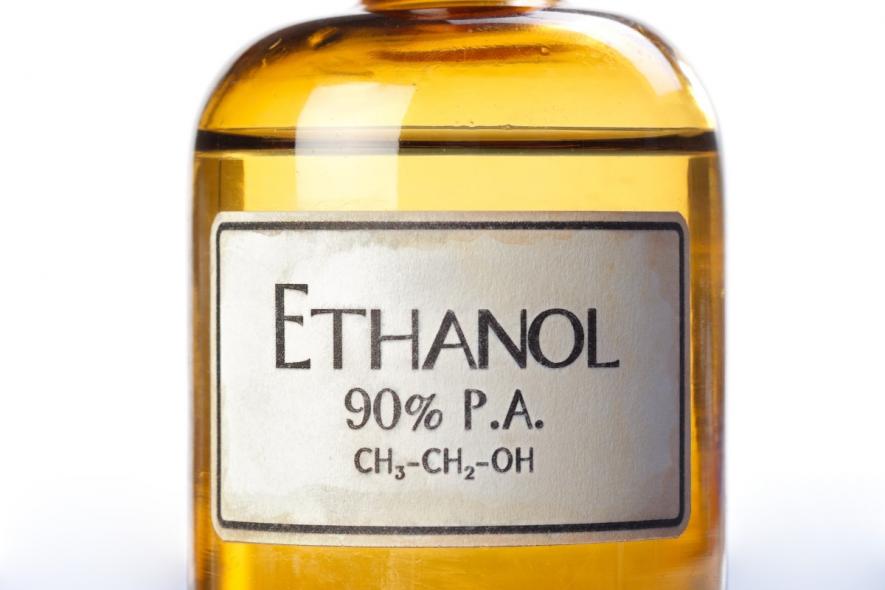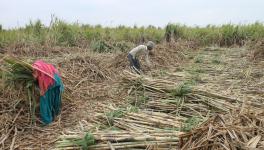Reasons to Produce Ethanol from Rice Stand on Shallow Ground, Say Experts

Representational image. | Image Courtesy: New Atlas
New Delhi: Not only has the Central Government’s decision to use surplus rice stocks in the country for producing ethanol, been criticised for being done at a time when food shortage is projected due to slowdown in global economic activity owing to the COVID-19 pandemic. The reasons given by the government for the decision – manufacture of hand sanitisers and ethanol blended petrol – though legal, as per provisions of the National Policy on Biofuel, 2018, have also been criticised for being shallow.
The Centre is yet to formally announce the exact quantity of rice which will go into ethanol production. However, as per sources, the National Biofuel Coordination Committee (NBCC) has decided to use approximately two million tons of rice from the Food Corporation of India (FCI) godowns for the purpose. As per estimates, the amount of rice is enough to meet the food requirements of families of all ration-card holders in the country, about 65% of our total population, for as many as 15 days.
The decision to derive ethanol from rice, a first in India, was taken by the NBCC which met under the chairmanship of Union Minister of Petroleum and Natural Gas, Dharmendra Pradhan, on April 20.
“It is upon the Department of Food & Public Distribution to give the green signal to the FCI for releasing approximately two million tons of rice which has been earmarked for producing ethanol. Distilleries will undertake production of ethanol from rice. The Department of Food & Public Distribution will be the nodal agency for the project of producing ethanol, a portion of which will go into production of hand sanitisers while another portion will be used for blending with petrol,” a senior official of the petroleum ministry, who wished to remain anonymous, told NewsClick.
The National Policy on Biofuel, 2018, allows for the production of ethanol from rice or sugarcane in a year when a bumper harvest of crops is anticipated by the Ministry of Agriculture and Farmers Welfare.
As of March, more than 30.97 million tons of rice and 27.52 million tons of wheat were stocked in FCI godowns across the country, along with over 28.70 million tons of un-milled paddy. An additional 35 million tons of food grains are expected to arrive at FCI gates following the end of harvesting for the Rabi season.
Irrespective of the central government’s projection of food grain availability for the near future, the United Nations has warned of “multiple famines of Biblical proportions within a short few months” owing to the Corona virus pandemic.
“In a worst-case scenario, we could be looking at famine in about three dozen countries, and in fact, in 10 of these countries we already have more than one million people per country who are on the verge of starvation … There are no famines yet. But I must warn you that if we don’t prepare and act now – to secure access, avoid funding shortfalls and disruptions to trade – we could be facing multiple famines of biblical proportions within a short few months,” David Beasley, chief of the UN World Food Programme, said in a statement on April 21.
So far, there have been no deliberations in the country on whether surplus food grains could be exported to countries that are facing food shortages, even though FCI godowns are overflowing with surplus stock. As of now, the stock available with the FCI is more than twice the amount required to be maintained as buffer.
As per the central government, the ethanol produced from rice will be only used only for two purposes – manufacturing hand sanitisers and for blending with petrol.
“A meeting of NBCC was held today under the Chairmanship of the Minister of Petroleum & Natural Gas Shri Dharmendra Pradhan, wherein it was approved that the surplus rice available with Food Corporation of India (FCI) may be converted to ethanol for utilization in making alcohol-based hand-sanitizers and in blending for Ethanol Blended Petrol (EBP) programme,” the central government had said in a statement issued after the NBCC meeting.
There has been an exponential demand for hand sanitisers across the country following the novel coronavirus pandemic and the resultant preventive health directives issued by various governments. If a circular issued by the central government on March 19, urging all state governments to ramp up production of hand sanitisers, however, is anything to go by, sugar and alcohol manufacturing industries have already committed to ensuring easy availability of ethanol.
“All possible arrangements should be made to ensure that Ethyl Alcohol/ENA is made easily available to the sanitizer industry. In this regard, Indian Sugar Mills Association (ISMA) and All India Distilleries Association (AIDA) have also assured that the input material, i.e., Ethyl Alcohol / ENA / Ethanol would be made available to the producers of sanitizers at a reasonable price,” the Union Ministry of Consumer Affairs, Food and Public Distribution, headed by Ram Vilas Paswan, had stated in the circular.
As per reports, the sugar industry had manufactured eight lakh litres of ethanol for the production of sanitisers, even though contribution from alcohol distilleries is not known yet.
The central government has also been criticised for proffering that ethanol derived from rice will be blended with petrol, particularly at a time when crude oil is trading in the negative in the international market owing to a lack of demand. Ethanol is generally blended with petrol in order to bring down the price of fuel in the retail market, thereby reducing import dependency on crude oil.
The Right to Food Campaign, an informal network of individuals and organisations committed to the realisation of the right to food in India, has criticised the government’s decision to divert food meant for those living the below poverty line, for the production of ethanol, at a time when there is no evidence of the shortage of alcohol in the country.
“Alcohol distilleries have in any case remained shut since March 25 when the nationwide lockdown was enforced. So, there is no evidence of shortage of alcohol in the country. It can be produced from sugarcane or beetroot. Since we are staring at an economic downturn, the government should immediately universalise the Public Distribution (PDS) system and begin a Food for Work programme if still left with any surplus stock. Rice meant for the PDS should never be diverted for producing alcohol,” said Nikhil Dey of the Right to Food Campaign.
The Centre does not seem to have clarity on the quality of rice that will be used to produce ethanol either. “We hope the central government uses only that quality of rice, which is unfit for human consumption, for the production of ethanol. There may not be a huge problem if only a very small quantity from the stocks is used for ethanol production,” said Ajay Vir Jakhar, Chairperson of Bharat Krishak Samaj, a forum of farmers, cooperatives and agricultural workers.
At the same time, there has been no concrete action plan by the government to ensure continued supply of food for millions from the working class who have been either stranded in various parts of the country or have been left unemployed by the lockdown.
As per the Agricultural Economics Research Association (AERA), a society working in the field of agricultural research and socio-economic problems, the central government should come up with an action plan to deal with the surplus stock of food grains because it has also to pay interest on loans borrowed to procure foodgrains, which is a burden on the national exchequer.
“Apart from building a social safety net with the surplus stock, the central government can think of alternative measures like processing the food grains for non-food items and boost further export. The private sector also needs to be roped in for the purpose which will generate employment opportunities,” said agriculture expert and AERA president Dr. Pramod Kumar Joshi.
The writer is an independent journalist.
Get the latest reports & analysis with people's perspective on Protests, movements & deep analytical videos, discussions of the current affairs in your Telegram app. Subscribe to NewsClick's Telegram channel & get Real-Time updates on stories, as they get published on our website.
























